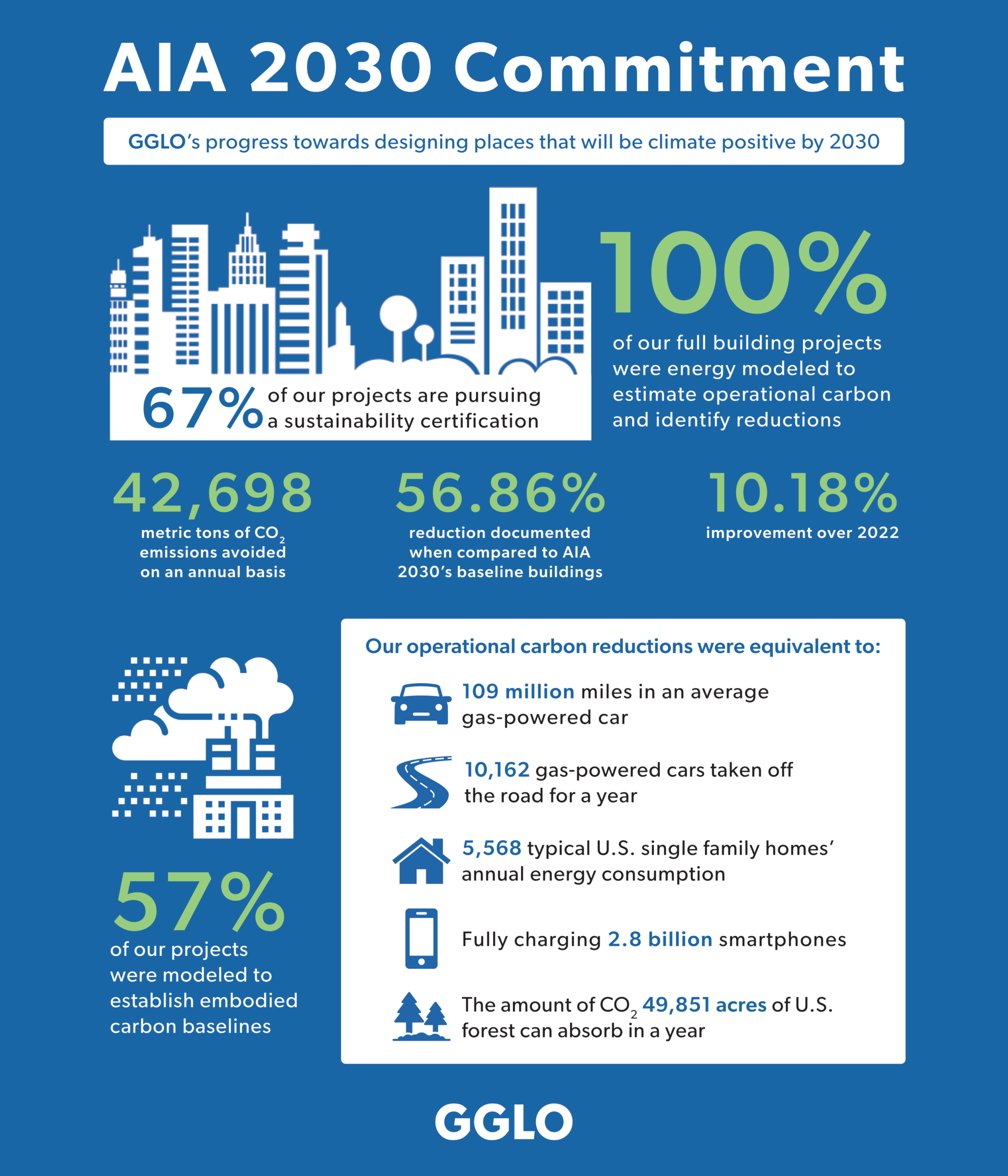Earth Day 2024 – AIA 2030 Commitment
April 22, 2024
April 22, 2024
Happy Earth Day! GGLO is excited to share our progress toward designing places to be Climate Positive Design by 2030. In response to the building sector contributing nearly 40% of total emissions related to climate change, the American Institute of Architects created the The AIA 2030 Commitment in 2010 to encourage member firms to reduce operational carbon in their projects. Operational carbon includes emissions of carbon dioxide and other global warming gases related to operating a building (i.e. lighting, power outlets, HVAC & water heating systems, pumps, elevators, and equipment). GGLO was among the first 60 firms of the now 1,300+ that have joined the Commitment to annually report their progress.
In addition to reducing operational carbon, we have expanded our focus the last several years to reducing the embodied carbon in our projects’ building materials and maximizing the sequestration potential of our landscapes. This is critically important to achieving Climate Positive design as embodied carbon is generated in the construction process and has significant and immediate impacts to climate change. GGLO was among the first 55 firms to report embodied carbon analysis to AIA 2030 and is a pilot partner with the Carbon Leadership Forum WBLCA Benchmark Study v2, contributing a multitude of whole building life cycle assessments to help establish embodied carbon baselines at a national level.

Over the last year, GGLO’s current projects have been designed to reduce operating emissions by nearly 57%, a 10% improvement over the previous year and a majority have been evaluated for embodied carbon reduction with targeted reductions to materials with the highest global warming potential. Thanks to all of our clients and collaborators that contributed to this effort!
For more information on our 2023 results, see News – GGLO.